Concrete Wicking Moisture
proud_democrat
12 years ago
Related Stories
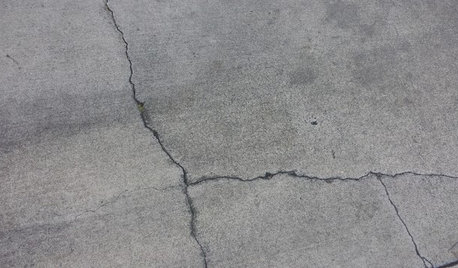
CONCRETEWhy Concrete Wants to Crack
We look at the reasons concrete has a tendency to crack — and what you can do to help control it
Full Story
FLOORSKnow Your Flooring: Concrete
Concrete floors have a raw and elegant beauty that can be surprisingly warm
Full Story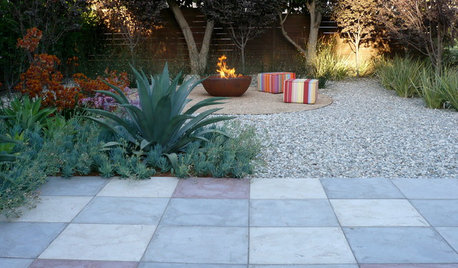
MATERIALSPrecast Concrete Pavers Make a Versatile Surface in the Garden
You can use concrete pavers in a variety of shapes and colors for your patio, walkway, driveway and more
Full Story
GREEN BUILDINGConsidering Concrete Floors? 3 Green-Minded Questions to Ask
Learn what’s in your concrete and about sustainability to make a healthy choice for your home and the earth
Full Story
KITCHEN DESIGNAmazing Ways with Concrete Countertops
See What Designers Are Doing With This Versatile, Weatherproof Counter Alternative
Full Story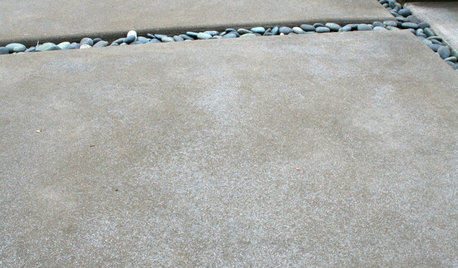
DESIGN DICTIONARYAcid-Etched Concrete
Acid etching prepares concrete to bond with paint, an epoxy or a stain
Full Story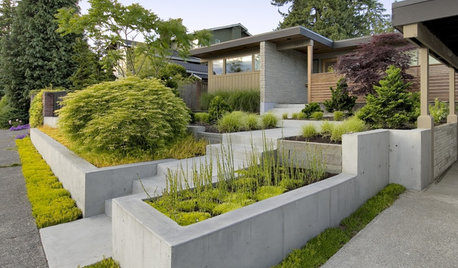
LANDSCAPE DESIGNGarden Walls: Pour On the Style With Concrete
There's no end to what you — make that your contractor — can create using this strong and low-maintenance material
Full Story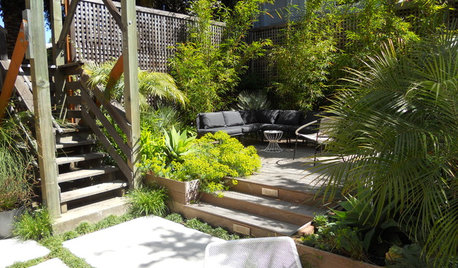
PATIOSPatio Details: Good-bye Cracked Concrete, Hello Lush Garden
A San Francisco couple replace an old parking space with a barefoot-friendly outdoor retreat for eating, entertaining and play
Full Story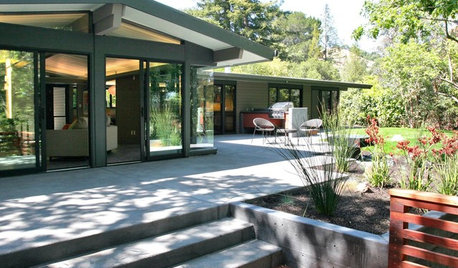
LANDSCAPE DESIGN5 Ways to Make Your Concrete Patio More Attractive
These design ideas can liven up your paved outdoor space
Full Story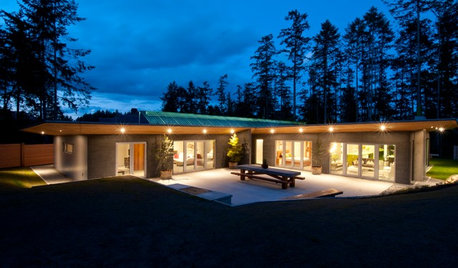
GREEN BUILDINGHouzz Tour: See a Concrete House With a $0 Energy Bill
Passive House principles and universal design elements result in a home that’ll work efficiently for the long haul
Full StoryMore Discussions







Belgianpup
novascapes
Related Professionals
Windham Landscape Architects & Landscape Designers · Oatfield Landscape Architects & Landscape Designers · Vernon Hills Landscape Architects & Landscape Designers · Annandale Landscape Contractors · Burlington Landscape Contractors · Camp Verde Landscape Contractors · Lynchburg Landscape Contractors · Mahwah Landscape Contractors · New Cassel Landscape Contractors · San Antonio Landscape Contractors · Wheat Ridge Landscape Contractors · Adrian Decks, Patios & Outdoor Enclosures · Dearborn Decks, Patios & Outdoor Enclosures · Lockport Decks, Patios & Outdoor Enclosures · Riverside Decks, Patios & Outdoor Enclosuresproud_democratOriginal Author
Kimmsr
novascapes
Kimmsr
novascapes
darth_weeder
novascapes
Kimmsr
jolj
Belgianpup